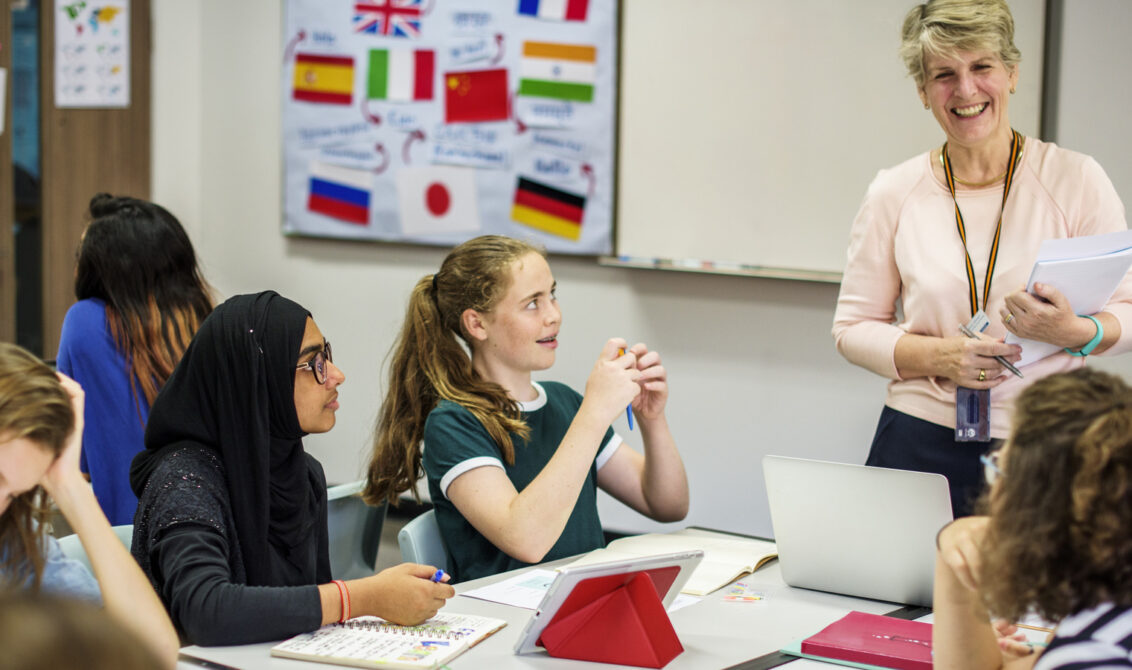
Generation Alpha will face a lot of challenges. They’ll need to solve the climate crisis and figure out how to co-exist with ever more powerful technology. That’s why World Youth Skills Day is a day to celebrate the skills young people have – and help them to build the skills they’ll need for the future. It takes place every year on July 15th but is particularly important in 2024 as conversations around pressing global and societal issues have risen among young people. More than ever, they need skills and knowledge that can help them navigate life ahead.
World Youth Skills Day was introduced by the United Nations General Assembly in 2014. Part of the reason the day was launched was because the youth population will grow by more than 78 million between 2021 and 2030. A larger youth population requires education, training and access to jobs. Without these, it will be harder to ensure high standards of living for more people, and a fairer, developed world for everyone.
But big impact starts on a small scale. There are a number of ways that you can bring World Youth Skills Day 2024 to your classroom and encourage students’ international skills development. Get started with these fun activities.
1. Create role models through mentoring programmes
Mentoring is one of the most effective strategies to build skills. A mentor can be an older student, a community member, a teacher or a professional in a role that interests your students. The idea is that each student meets with their mentor on a regular basis to discuss experiences, ask for advice and shadow their mentor in their work.
This kind of structured and regular interaction allows your students to build a relationship with their mentors and motivates them to develop similar skills. They’ll get real-world insights into adult experiences and access to their mentor’s network. The mentoring relationship can empower your students to prioritise the skills they’ll need in their professional life, and even identify where they can contribute something unique.
2. Volunteer with local organisations that line up with students’ interests
Volunteering is a great way to build new skills. Try to coordinate with local non-profits, community centres and environmental groups to get your students involved. Ideally, match students’ interests with the type of volunteering that they do – for example, if students are curious about law, you could set them up with an organisation like the Citizens Advice Bureau. If they gravitate towards veterinary work, partner them up with a charity caring for stray animals.
Volunteering teaches students critical skills like teamwork, leadership and empathy, all while giving them hands-on experience of a professional environment. It will also give them a taste of social responsibility and civic engagement and shows them the importance of a collaborative approach.
3. Encourage peer-to-peer learning with student-led seminars
World Youth Skills Day is just as much about showcasing skills as learning new ones. Student-led seminars celebrate your students’ passions and knowledge on important topics. You could set up a seminar in your classroom, inviting students to lead a five-minute presentation or discussion in front of their peers. This could be on anything from a feminist critique of Greta Gerwig’s Barbie to the portrayal of totalitarianism in Star Wars.
Seminars can increase confidence among students, and can also develop their public speaking skills. It teaches them to respect and appreciate diverse perspectives from others, and at the same time, it boosts their creativity by having to think about how to package and deliver their opinions.
4. Make collaborative problem-solving a regular classroom feature
Analytical thinking has been listed as the top skill for the future of work, so it makes sense to give students tasks that prompt them to think with a critical lens.
Problem-solving in the classroom could focus on current global events, where you ask students to come up with innovative solutions. Working in groups, your students could think analytically about ways to combat disinformation, how to accommodate mass migration of people or the consequences of rising populism. They should present their work back to the class, explaining why their solution would be impactful and how it can be scaled to help the most people.
Competitions stimulate young people to think outside the box while still creating practical solutions. They enable students to approach problems methodically and to become more resilient in their work. And your students learn to work towards a goal, and know the importance of championing each others’ skills.
5. Be ready, get set, and learn via gamification
Research shows that gamified learning positively influences skills development. It does so by making content more appealing to students, increasing their motivation and increasing their ability to remember new information. You can integrate gamification in the classroom with leadership boards, awards badges, and point systems (any element of game play really). In turn, this facilitates goal setting and learner autonomy among your students – skills that are vital for their personal and professional lives.
In the context of World Youth Skills Day, gamified learning shapes better decision-making, educational independence and a more positive attitude in students. It also gives them a tool to teach others in a fun, effective way if they are in leadership positions where they have to guide others through a task or topic.
6. Host a model UN meeting
Model UN is when students re-enact a United Nations meeting, with each student representing a certain nation and its political and cultural stance. This activity provides your students with an immersive experience in diplomacy and international relations, and fosters their writing, debate and interpersonal skills. It also helps them better understand conflict resolution and being assertive.
Model UN gives students a platform to think about issues and topics from a global standpoint. Here, they can think beyond their experiences and step into other people’s perspectives – which boosts their empathy and compassion, and gets them started on their journey as a global citizen. Students can learn to participate in difficult dialogues too, which prepares them for inevitable disputes in the workplace, and can teach them how to deescalate situations and actively listen to others.
Further reading
World Youth Skills Day shouldn’t be confined to just July 15th – the message of recognising and expanding students’ skills has to be a year-round practice. By integrating the above activities into your classroom, you can inspire students to build the skills they’ll need to navigate their futures.
Learn more about developing students’ skills for the future. Read Social learning: what is it and how to encourage students to participate?, Exam preparation: how students can use AI for studying, and How to teach your students emotional regulation.
Sign up to receive our blog updates
Like what you read and want to receive more articles like this direct to your inbox? Subscribe to our blog and we’ll send you a fortnightly digest of the blog posts you may have missed, plus links to free resources to support your teaching and learning.
